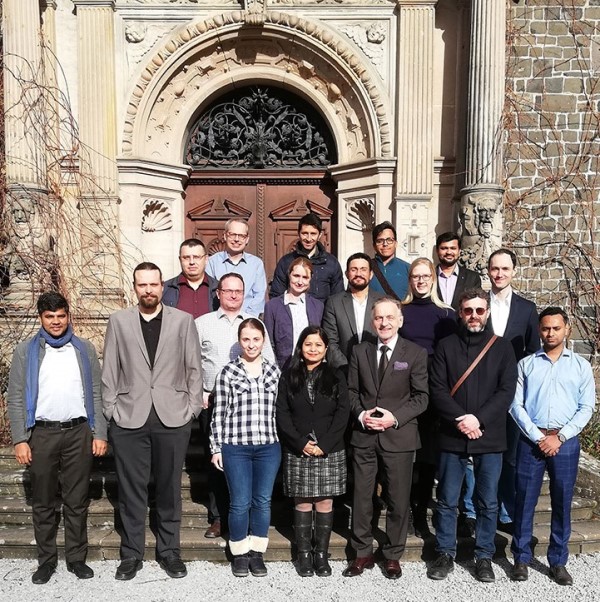IUSSP Seminar on Lifespan Extension with Varying Cause-of-Death Trajectories in European SocietiesCastle of Rauischholzhausen, Germany, 11-13 February 2019
Organized by the IUSSP Scientific Panel on Lifespan extension with Varying Cause-of-Death Trajectories.
Local Organizing Committee: - Ulrich Mueller (Federal Institute for Population Research, Wiesbaden/Germany; Philipps-University Marburg/Germany)
- Andrea Werdecker (Federal Institute for Population Research, Wiesbaden/Germany)
- Ronny Westerman (Federal Institute for Population Research, Wiesbaden/Germany)
The IUSSP Scientific Panel on Lifespan extension with Varying Cause-of-Death Trajectories (2015-2019) focused on the divergence between a substantial and fairly uniform extension of the average life span in similarly prosperous countries, going hand in hand with an enormous change in the distribution of causes-of-death during that extension of the life span, and on the other side, the much larger differences in the incidence of single causes of death from country to country than in general mortality.
Thus, there must be great variation in the cause-of-death trajectories leading from the 50 years’ life expectancy societies around 1900 to the 80 years’ life expectancy societies in 2013, and even more variation, if we include developing/transitional societies which have experienced an even faster lifespan extension and a faster epidemiological transition at still lower levels of standard of living.
After seminars in New Delhi (India) and Campinas (Brazil) in 2017 and a session at the 2017 International Population Conference in Cape Town (South Africa), the IUSSP Scientific Panel concluded its work with this Seminar on Lifespan extension with Varying Cause-of-Death Trajectories in European Societies, held 11-13 February 2019 at the Castle of Rauischholzhausen, Germany. The meeting was organized with financial support from the IUSSP and the German Research Foundation (DFG - Grant ID: Mu609/33-1).
The seminar focused on themes related to mortality and causes-of-death studies in European countries, regional variation in cause of death profiles, methodological challenges in oldest-old mortality assessments in international settings, as well as methodologies for countries with limited data. The goal of the seminar was to bring together researchers from developing and developed countries with an interest in mortality and cause-of-death analysis. More specifically, the objectives of the seminar, as they evolved from the submissions’ profile, were:
- to present studies of all-cause and cause-specific mortality covering disadvantaged and privileged populations in Europe and India;
- to highlight new methodologies on mortality cause-of-death decomposition; and
- to discuss possible small-area mortality estimates for Germany.
The scientific programme consisted in 15 regular presentations by participants from a variety of disciplines – demographers, statisticians, economists and public health specialists – and included senior researchers as well as postdocs from Colombia, Denmark, Germany, India, Italy, Macedonia, the Netherlands, and Russia. The programme provided ample time for extensive discussions of the papers by discussants – Sebastian Klüsener, Ulrich Mueller and Kai Willführ – as well as seminar participants. An after-dinner lecture on “New Imaging Techniques in Cause-of-Death Diagnostics” was given on February 11 by an internationally renowned expert in forensic imaging, Sarah Heinze (Medical School, Heidelberg University).
See full list of presenters and papers in the Seminar Report.
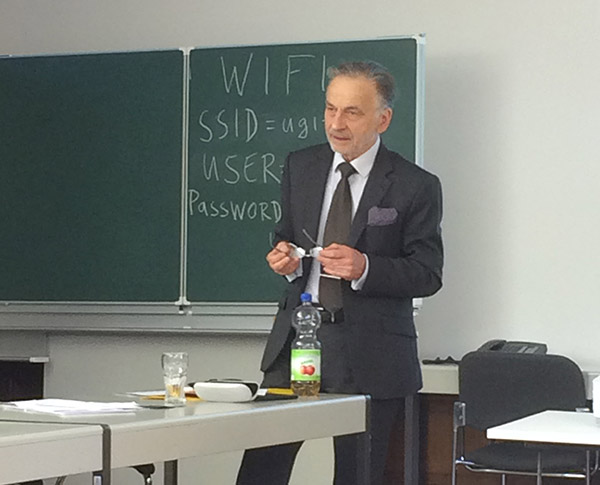
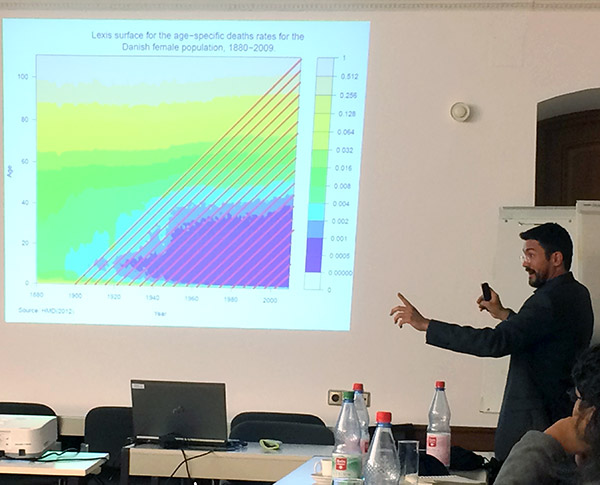
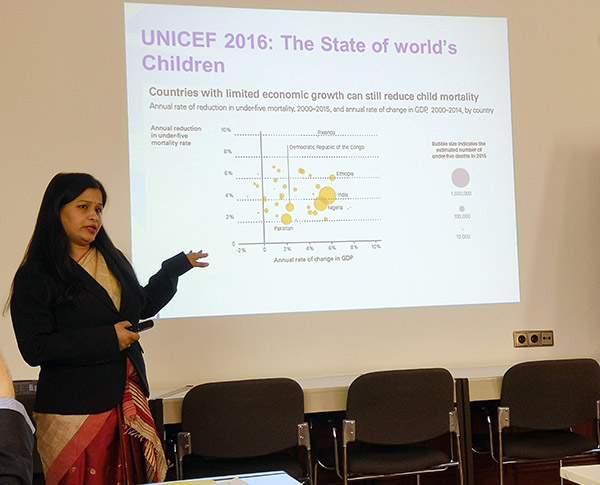
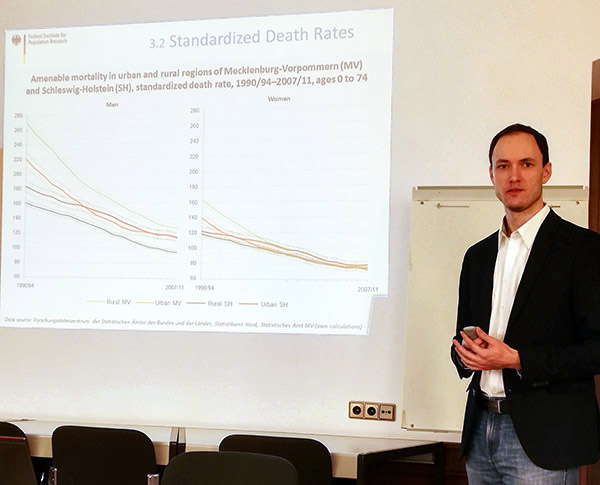
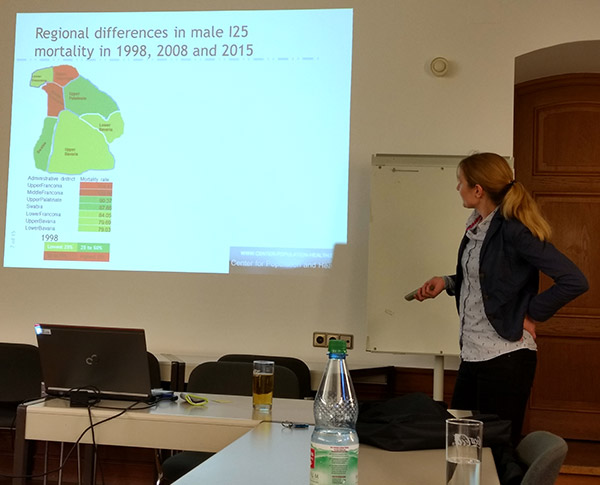
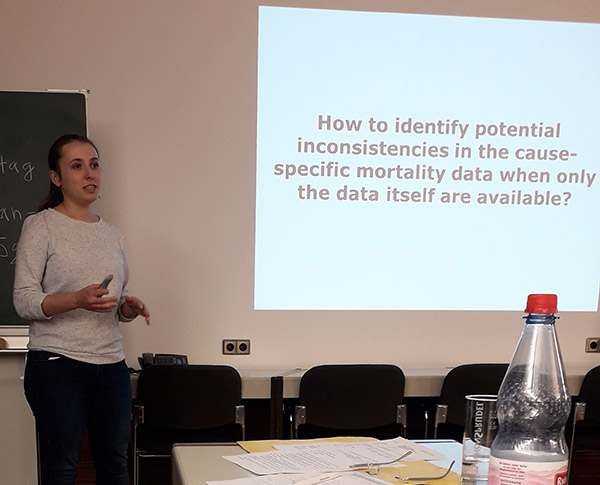
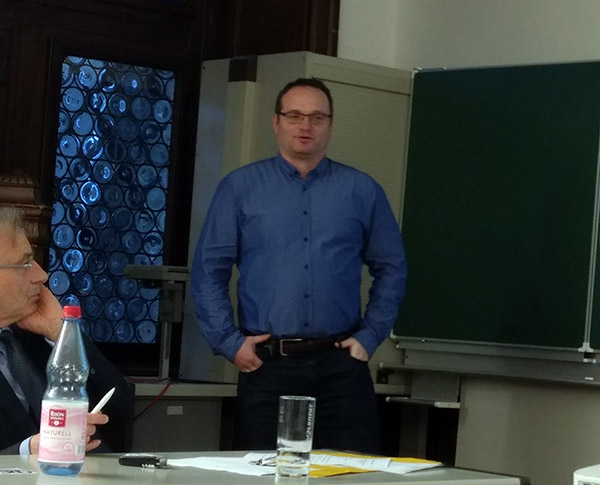
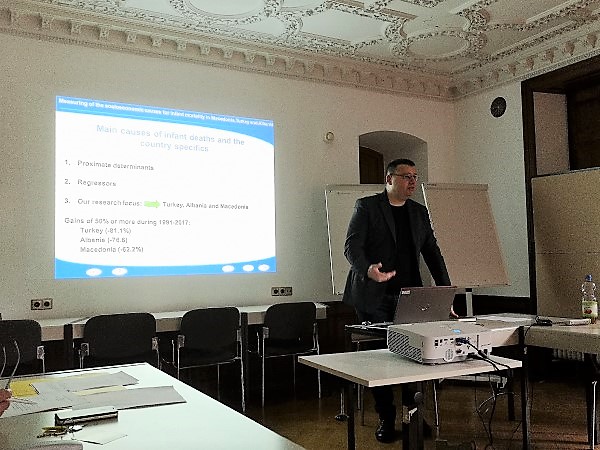
|
